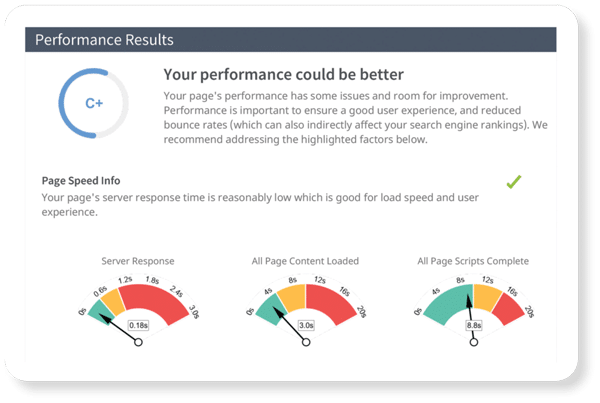Some marketing companies will tell you the sure fire way to get traffic from search engines is to spend money on a pay-per-click (PPC) campaign. They tell you: select keywords and spend $3,000/month. It’s the easy way to get traffic.
Six months later, you’ve spent $18,000, and you don’t even know the number of patients you got from the whole thing. PPC campaigns require thoughtful planning and reporting to be successful.
Organic Search Has Changed
Over the last year Google has released a number of algorithm changes that target sub-par, manipulative SEO tactics. The same search engine optimization strategies that worked a year ago are now completely ineffective and actually hurt the site. This has left more and more SEO companies desperate to keep their current client base, so they are selling PPC as the new way to reach customers.
True, PPC can target searchers and show an immediate return (for page one impressions), whereas organic search tactics take 3-6 months for a site to start showing up in the search engine results page. But again, PPC strategies need to be goal focused and based on research. Whether organic search or pay-per-click, you must select the proper keywords.
Local Keywords are Expensive
I can’t say it enough, keyword research is essential to success. Select keywords based on volume and relevancy. For instance, you can bid on “plastic surgeon in Beverly Hills”, which your SEO guy will tell you is the best term to target local search engine users. But, long-tailed, geo-specific keywords are highly competitive, expensive and aren’t used by most people.
Instead of bidding on the term “plastic surgeon in Beverly Hills”, which costs $8.04 per click, you could bid on the term “plastic surgeon” then modify the settings in AdWords so that your ads only show up for searchers in Beverly Hills. Plastic surgeon only costs $5.67 per click and has a much higher search volume globally, nationally and in the specific metro area of the doctor.
Thoughtful preparation and research should direct a PPC campaign. If you outsource your PPC efforts, make sure you are supplied keyword research before giving the green light to place ads.
Define a Conversion
A conversion can be a variety of things: filling out a form, calling the office or requesting an appointment. The most important thing is to define the conversion for your specific campaign. The conversion should match the keyword and searcher’s intent. For instance, if I am searching for a plastic surgeon in Beverly Hills , then I probably don’t want to download a whitepaper. I do want to call the office or look over before and after photos.
Consider what action initiates and completes the conversion. A person conducting a search in Google initiates the conversion funnel. Consider the keyword the user entered and ask yourself: what is the intention? What is the search engine user looking for? Then give the searcher what he/she wants (landing page) and compel him/her to take further action. This is the conversion funnel is a series of steps a person takes that leads to the completion of a desired action.
Send Traffic to a Targeted Page
If your PPC ad links to your homepage, this is a sign that the campaign has some issues. PPC ads should always link to a landing page targeted to the search query (keyword) and searcher intent. The call to action should be specific to the desires of the searcher. What problem are you solving for the searcher? There should only be one call to action. And that call to action should promise to address what drove the searchers to Google in the first place. You’re paying per visit so you want to make sure that the visitor does exactly what you want.
The landing page should match the design of your brand and can live in the domain of your website. Landing pages shouldn’t be crawled or indexed and shouldn’t be accessible from any navigation on the site.
Who Am I Targeting? Who is Converting?
The trouble and the beauty of the Internet is that it is global. Google has taken steps over the past few years to personalize search results based on location knowing that people are interested in finding businesses in their area. Most local businesses should target people interested in their services in their specific geographic location, especially when it comes to PPC. You’re paying per visit, so you want the traffic to be viable customers. I recently looked over a PPC report for a prospective client and discovered that the firm managing the PPC campaign was counting conversions from people in Bangladesh. Now, this is a local, service-based business whose prospective client pool comes from very specific metro areas. What good does traffic from a person half way around the world do for a business in Park City, Utah? A conversion from Bangladesh is a sign that the PPC campaign is set up incorrectly, i.e. not targeting the right location. It is also a sign that manipulative tactics are in play to exaggerate the results.
PPC can be a viable traffic strategy. However, it needs to be implemented properly with a clear goal and conversion funnel. Look closely at PPC reports, and always ask yourself if the traffic coming to the site or completing the conversion is traffic that is highly likely to become a paying customer.



